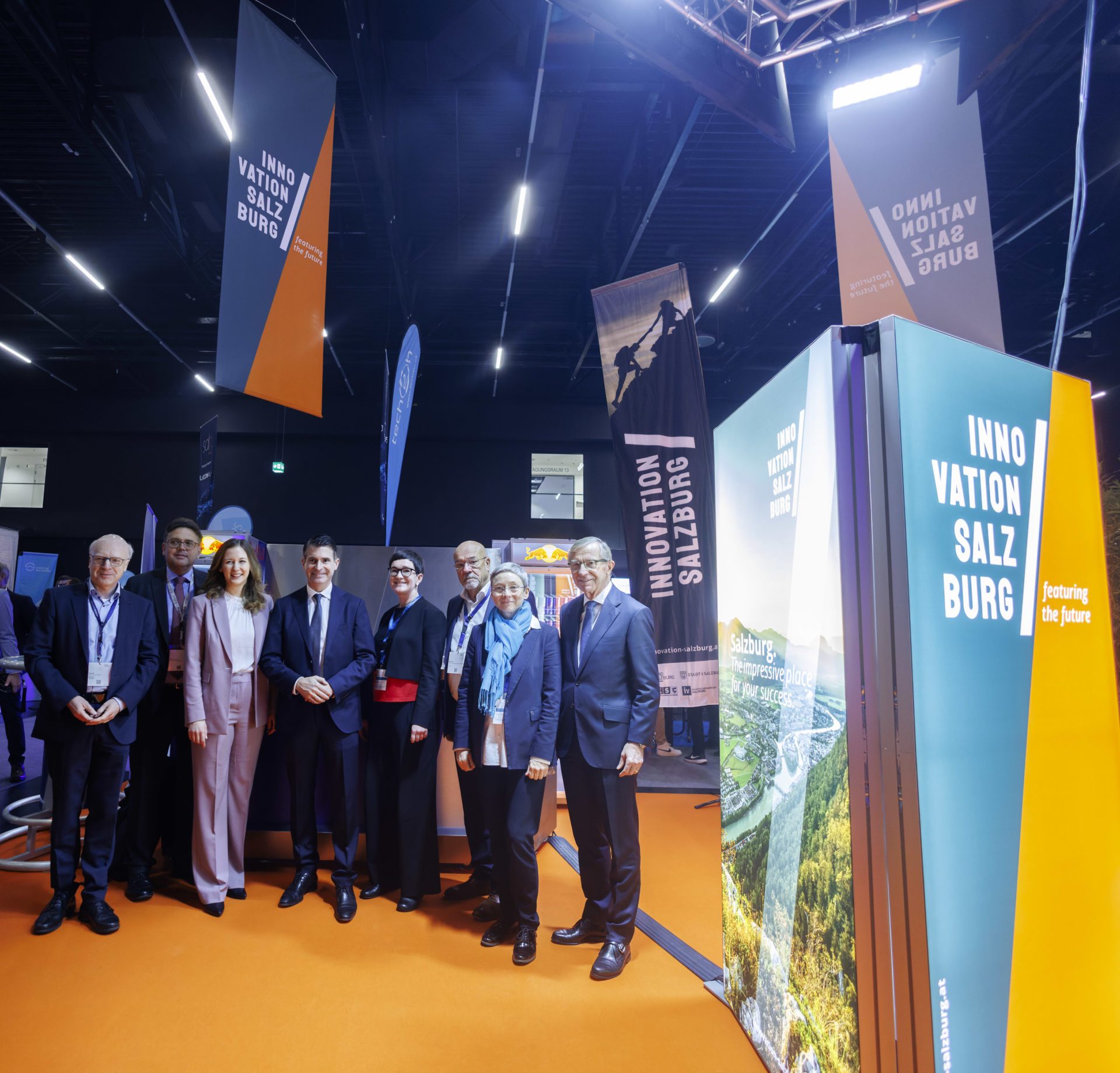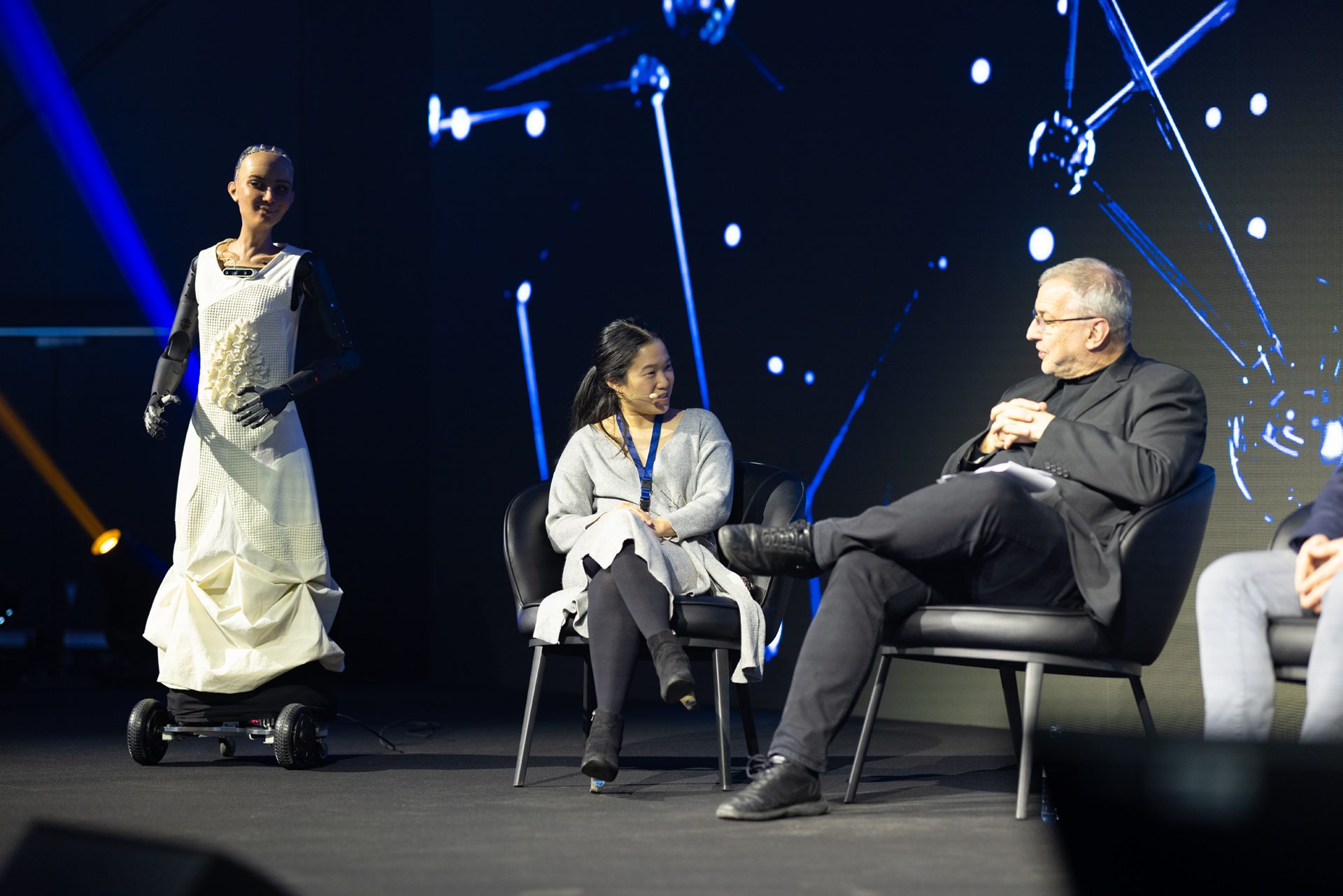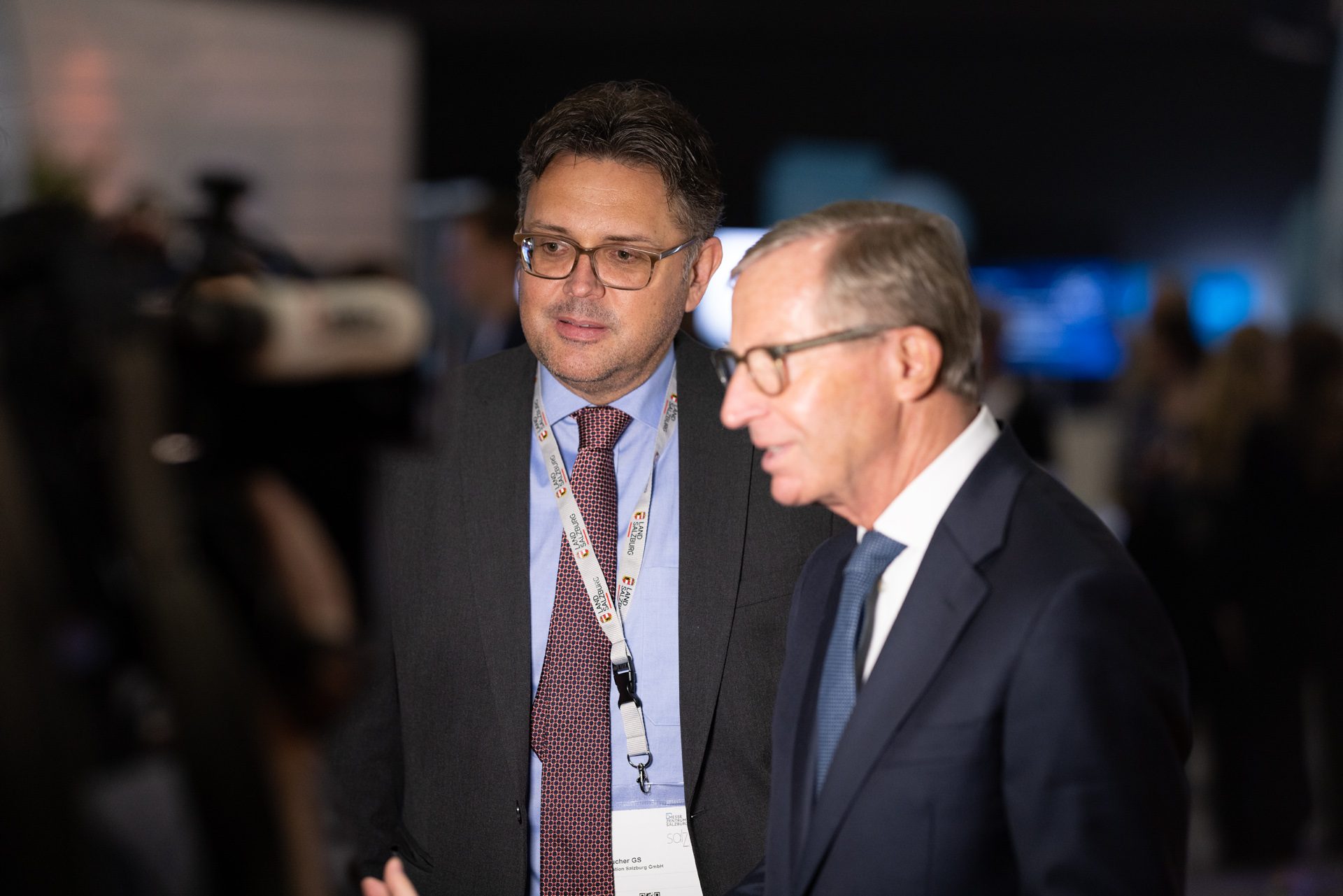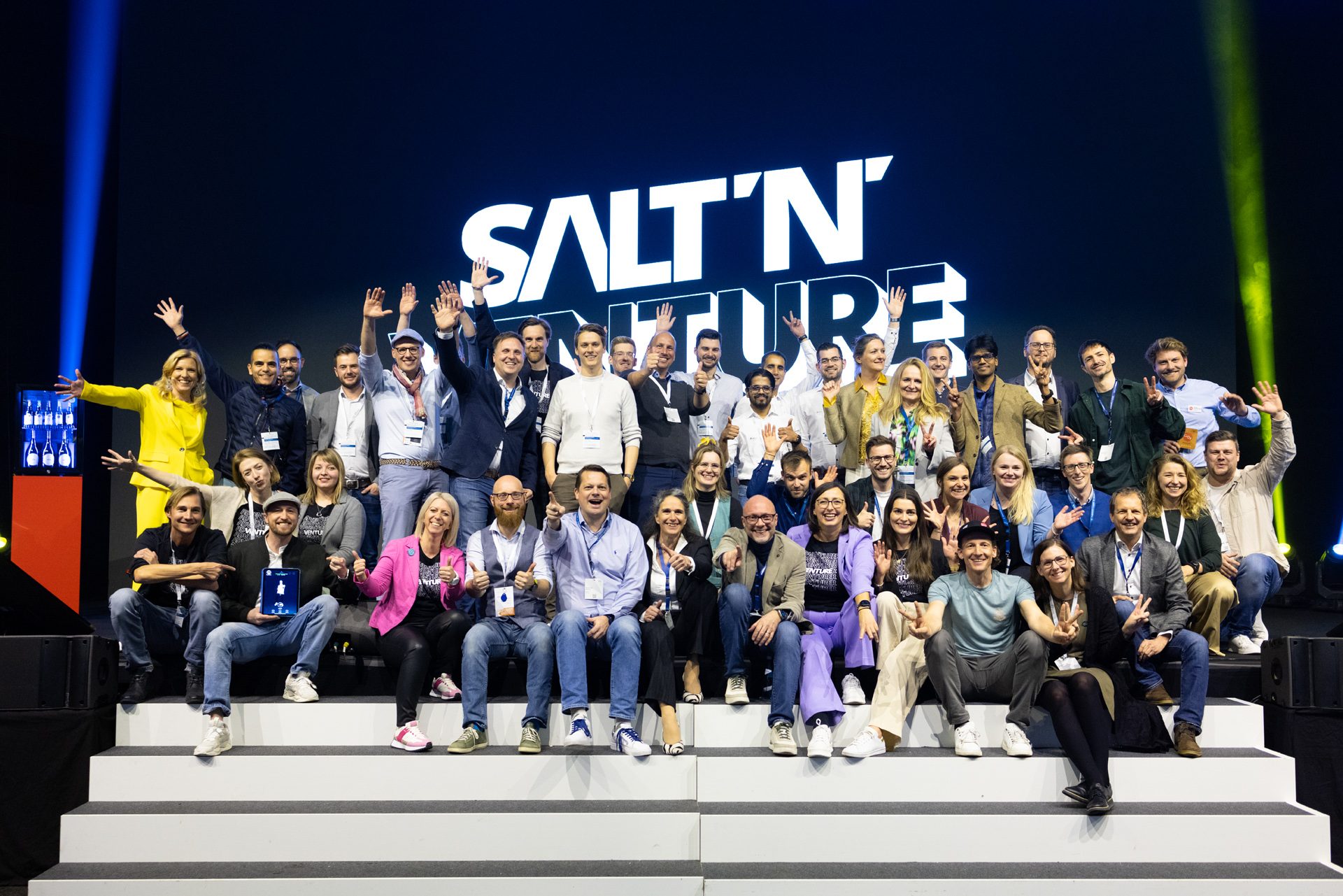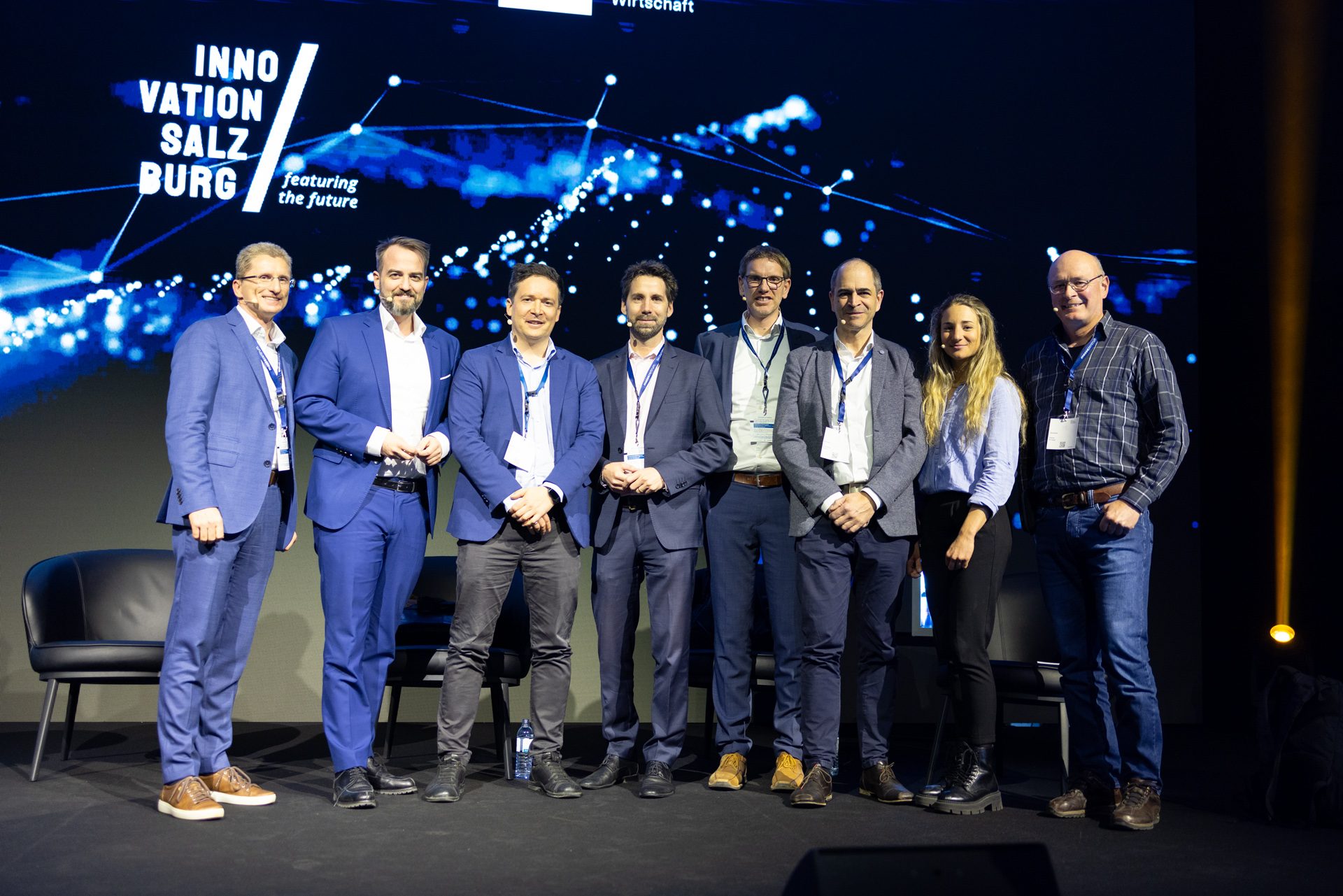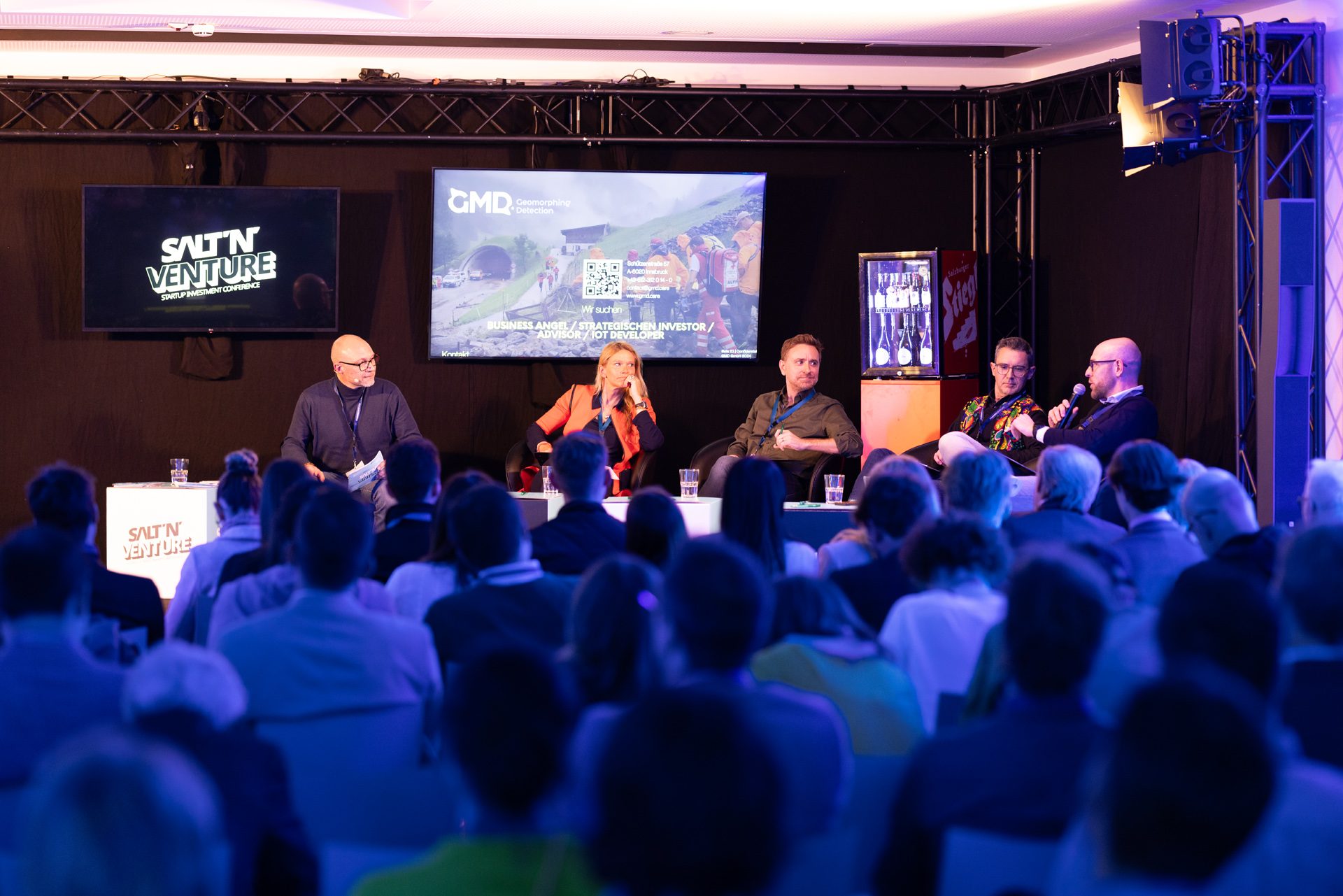
The start of salz21 and our program there was marked by the Bavarian-Austrian Top Talks. Both countries are economically, culturally, and humanly interconnected. This common ground and the potentials for more were at the center of the top-level discussions among political representatives. Salzburg Governor Wilfried Haslauer, State Minister of the Free State of Bavaria Eric Beißwenger, State Secretary Claudia Plakolm, Deputy Secretary-General of the Austrian Federal Economic Chamber (WKÖ) Mariana Kühnel, and President of the Association of Bavarian Industry Wolfram Hatz gathered on the stage of salz21 for the discussion at the invitation of Innovation Salzburg. One of the most important questions: What can be done about the shortage of skilled workers? There was agreement that the easiest approach can be taken within one’s own country: freeing up women through better childcare, strengthening apprenticeships, providing incentives for full-time work, and facilitating the entry into professional life for young people through suitable counseling services are the key measures that can be implemented. The discussion also touched on the atmosphere within the country: a high level of noticeable xenophobia does not serve the recruitment of skilled workers.
Research must be given more weight
There was also consensus on the importance of research and innovation and their significance for necessary transformations. Among other things, Bavaria has adopted a high-tech agenda with planned investments of 3.5 billion euros. This includes artificial intelligence and quantum technology, among other topics. Mariana Kühnel from the Austrian Federal Economic Chamber also wishes for such a strategy for Austria. Both countries have room for improvement: bureaucracy should be streamlined and better digitally represented, existing strategies must be coordinated and strengthened to the best possible extent.
Cooperation, focus, and funding in research
Especially concerning research, the second panel consisting of Henriette Spyra from the Federal Ministry for Climate Protection, Matthias Konrad from Bayern Innovativ, Brigitte Bach from the Austrian Institute of Technology, Manfred Rosenstatter from the Salzburg Chamber of Commerce, and Henrietta Egerth-Stadlhuber from the FFG (Austrian Research Promotion Agency) agrees: it needs fewer regulations, more funding, and focus. Because the best researchers go where the conditions are right. Research is international, meaning priorities should be aligned not just in Austria but ideally across Europe, so that outstanding research doesn’t compete against each other but rather attracts new talents. Additionally, unanimously, the panel agrees that spending must increase. The famous 1 euro spent on public expenditure returns six times in the form of long-term GDP growth of 6 euros. However, according to Egerth-Stadlhuber, it would take 10 euros for development and 100 euros for the utilization of research results into concrete business opportunities. There is still room for improvement in Austria. We are very good at creating startups, but there are still significant gaps in support when it comes to growing into medium-sized companies. Brigitte Bach advocates for studying good technology policies from other countries and learning from them, using those insights to pave the way for bold Austrian technology policies.
Quick decisions instead of Sunday speeches
Especially in the context of global crises, it would be crucial to take swift steps. This is also the view shared by the experts in the following program points on decarbonization, hydrogen utilization, and circular economy. Speakers once again demonstrated what could already be possible if only the funding and regulatory conditions were right. Particularly in the construction industry, where a large portion of CO2 emissions is generated, there are numerous renewable resources available as building materials and processes that enable resource savings. Collin Michael Flesner, Program Manager at the Austria Wirtschaftsservice (aws), points out that two-thirds of waste in Austria comes from the construction sector. While construction companies are under pressure due to the pandemic and the Ukraine war, and many are planning a realignment, the research and development quota here remains at only 0.9%. The aws aims to address this low motivation with a new funding program.
Hydrogen in practice
Regarding the use of hydrogen, experts agreed that it is not a panacea and will play a complementary role to other energy sources (such as batteries). It always depends on the application. Where hydrogen makes sense—such as in heavy transports or in industry—funding is still lacking to achieve the necessary scale. This applies to both clean hydrogen production and infrastructure for transportation.
Can a new economic system emerge?
Manfred Renner pointed out that new economic systems emerge through war or other major societal upheavals. The circular economy represents a new system that goes far beyond recycling. It involves natural resources, decarbonization technologies, but also a shift in consumption patterns. Focus needs to return to durable instead of disposable products. Experts agree that a moralistic approach and societal polarization are not suitable for introducing a new system. It requires a collective effort. Whether this can be achieved remained open. However, optimism prevailed due to many foreseeable possibilities.
This might also interest you
6. March 2025
salz21: Necessary Steps for the Future
On March 5, 2025, salz21 | Home of Innovation once again provided a platform for future topics, innovations, and interdisciplinary exchange. More than 1,000 visitors took the opportunity to learn about current developments and discuss perspectives for tomorrow. Three topics were particularly dominant: climate protection, artificial intelligence, and a strong Europe.
25. September 2024
Green Deal: How Sustainable Business Development Can Look
The EU aims to create political and legal frameworks through the Green Deal to transform both the economy and society in a sustainable way. The Pinzgau-based company Design Composite demonstrates how this can be implemented.
6. September 2024
Franz-Benjamin Mocnik researches the communication of places.
In Salzburg, there is an exciting digitization research project: Franz-Benjamin Mocnik is studying the communication of places for the Faculty of DAS.
29. July 2024
Pioneering Workshops and Inspiring Screenplays
For the first time, workshops were held in the lead-up to the Media Summit, addressing current topics in the film and media industry: the perennial issue of film funding, green filming with the best practice case study “Rickerl,” and women in film with the winners of the screenplay competition “Heroines in Series.” The workshops were well attended, with 120 participants.
